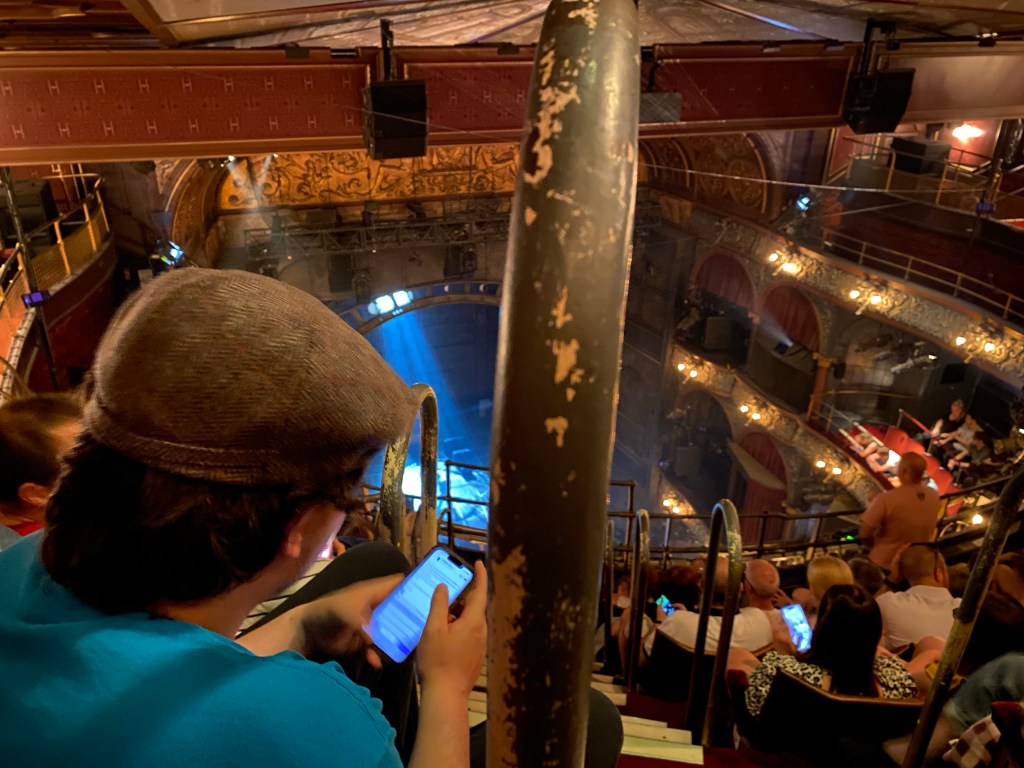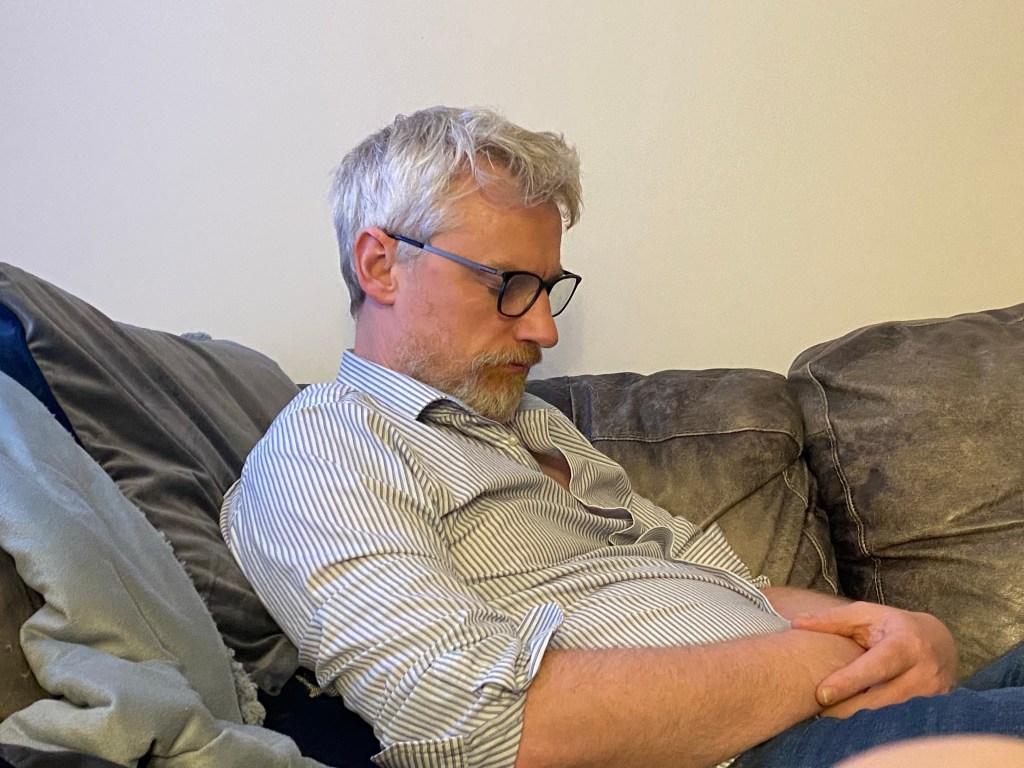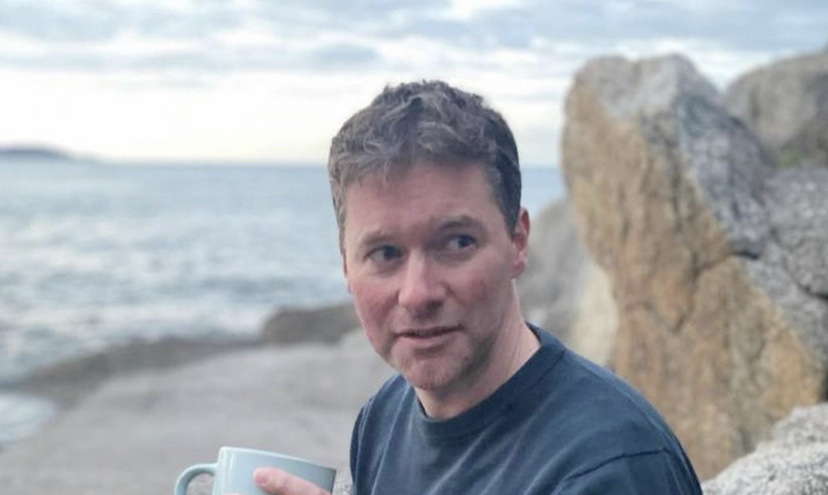
I am sitting uncomfortably in a worryingly small seat at a disturbingly advanced height peering at a dimly lit stage far off in the distance below.
I am also giggling nervously for a number of reasons. I lean across my son in the direction of my wife who is sitting at the end of the row.
‘The woman on the way in said this show lasts for five hours?’
‘Yes, I told you that several times. It’s divided into two parts with a break in the middle, but five hours in total.’
I sit back in my tiny seat in the famous old theatre. We are in London on a short family break going to see a West End show. A Harry Potter West End show. We had promised our son this treat months ago, and countless excited words have been spoken about it since then. But it is only now, amid the hustle and whispers of the pre-show enthusiasm, that the full implications are beginning to dawn on me.
Our seats are very far from the stage, being the best that we could afford without having to re-mortgage the house. As we arrived at our place high in the balcony, I was disturbed by how steep the stairs and rows of seats were, as if the theatre had been squeezed and compressed by a pair of giant hands. The slope is so sheer that I have a genuine concern that, if as expected, I doze off during the show, I might keel forward and cause an incident by rolling down the rows and then falling onto the stage below.
The stage seems to be so far away. I look at my son beside me, peering excitedly through a tiny pair of binoculars.
‘Can you see ok son?’
‘Yeah, these are the best seats. I can see everything.’
Another problem is space. The theatre is full for the first part of the double performance. I have absolutely no leg room. I guess that the building was constructed in an age when people were shorter. My knees are already digging painfully into the hard, shining wood of the seat directly in front and I can’t seem to reposition myself for comfort. I am also sweating profusely in the heat and beginning to panic a little. Waves of claustrophobia roll over me. I can’t sit in this stationary position for five hours. I fear that I will crack. I lean back towards my wife.
‘Do you mind swapping seats? I can’t move my legs here, there’s no room.’
This turns out to be a major hassle in the tightly packed theatre which involves several people having to stand up, readjust their position or lift items from the floor in order that I can be re-seated. I hear several tuts of disapproval from the row behind as I struggle in the darkness.
Now, I am sitting at the end of the row and can mercifully stretch my long legs out onto the aisle stairs. I inhale and exhale deeply in an attempt to slow down my breathing. However, the new seating arrangement brings a fresh challenge. There is a large and prominent circular metal pole (a safety barrier I presume) directly in front of me now. I try to put my legs to the left of it, but they don’t quite fit. I try to put my legs to the right of it, but this is an unnatural and painful position. The only moderately comfortable solution is for me to sit with one leg either side of the metal barrier so that it rises right in front of my torso and face. This solution, as you can imagine, does not assist an unhindered view of the play.
Then there is the man in front of me. He just won’t sit still. When he leans left, I lean right to try to see the stage. When he leans right, I lean left. And, bafflingly, he is wearing a hat. I cannot underestimate how warm it is in this theatre. There is only one person who thinks it is sensible to wear a hat in these conditions – and he is sitting in front of me. Granted, it is a flat cap, but it begins to divert so much of my attention that he might as well be wearing a top hat.
Finally, the performance begins. My son almost leaps off his seat with excitement and gasps audibly when the actors appear. I sit back and close my eyes for a moment. I think about how this whole short trip has been dominated by my son’s current obsession with Harry Potter.
There was the Harry Potter walking trip where we spent two and a half hours dandering along narrow streets while our guide pointed out corners of buildings which had appeared for a millisecond in one of the many films.
Then there was the visit to the Harry Potter shop where my son buzzed about excitedly while I browsed through some the books. The Harry Potter Vegan Cookbook. The Harry Potter Book of Knitting Patterns.
At one point in the shop, I waited while my wife and son queued at the till. I smiled at a man of roughly my age who was standing close by.
‘Do your kids love Harry Potter too then?’
He stared hard at me.
‘I don’t have kids.’
And now, here I am sitting with my eyes closed in the dark theatre, with a huge metal bar in front of my face. There are five hours of Harry Potter ahead of me.
My son’s small hand slips inside mine. I can feel the slight tremble of excitement. I open my eyes and glance quickly at him, utterly transfixed by the action on the stage.
I sit back and try to relax. I hear the music, watch the movements and expressions of the actors, pick up the thread of the story. I begin to reacquaint myself with the long-forgotten joy of live theatre.
And, I have to say, it was a magical experience.





